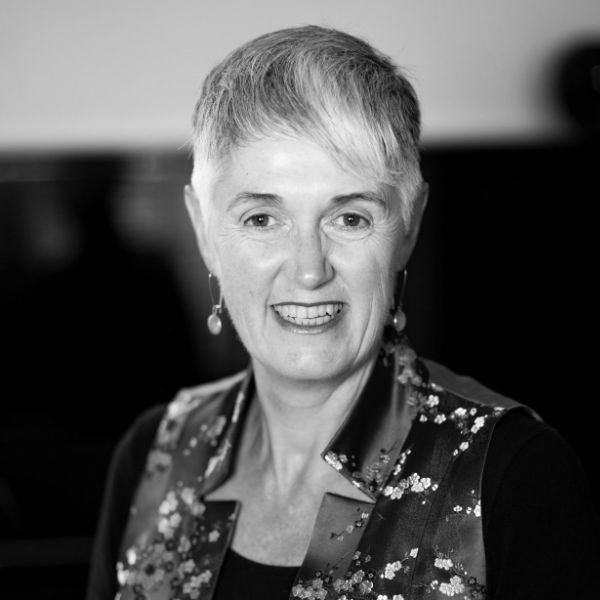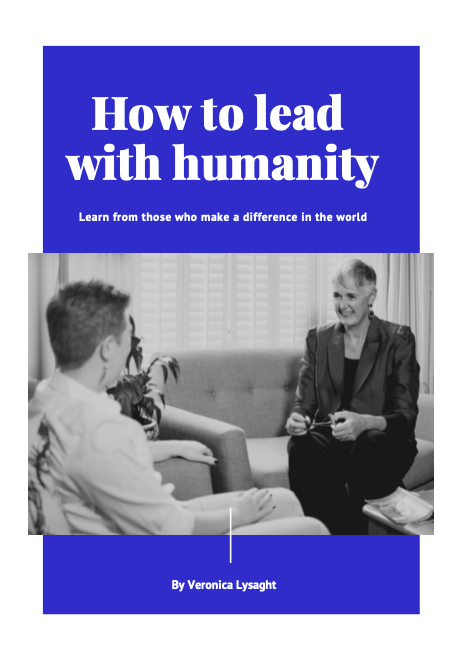What can the pandemic teach us about leading?
A few months into the pandemic, articles started appearing in the Western media analysing how the virus infection rates were lower in countries led by women, but the headline was not the whole story. It is true, some women leaders did excel. What is more important is how they led and what we can all learn from them about leading.
‘The past is a foreign country; they do things differently there,’ goes the opening line of L.P. Hartley’s novel, the Go-between. The world before COVID-19 outbreak was a different place. The pandemic has exposed our human fragility – and our connectedness; how the actions of those in another country or continent can have an impact on the whole of humanity; it has changed our world, given us an opportunity to not return to the pre-COVID19 world, but instead to look at what we would like to create in the future. In leadership development, the global crises of climate change, a pandemic, as well as social and racial inequality, give us an opportunity to forge new ways of leading and to leave behind outdated models of hero leadership and self-interest.
The leading we witnessed
The pandemic highlighted a schism in the way leaders in the public eye, act; there are those whose self-interest is evident and those whose interest is in service of others. It is as if the styles of leading are becoming polarized, with those in public roles – like New Zealand Prime Minister Jacinda Ardern becoming a flagbearer for a way of leading that places people at its heart and encourages listening while remaining curious and flexible. For example, Jacinda Ardern recorded a vlog during New Zealand’s first lockdown, where she appeared in old clothes, talking about how putting a toddler to bed can be a ‘messy business.’[i] She subsequently urged New Zealanders to be kind to each other.
Just across the Tasman, Dr Josie McLean[ii], author of ‘Big Little Shifts,’ says ‘hero’ leadership has had its day. She says there is a bigger process going on where we’re in a transition from mechanistic leadership to more living systems, where the role of a leader is to be ‘more facilitative and nurturing.’ She compares leading to being a gardener of people and the human environment.
‘It is by nurturing, supporting, questioning and encouraging diversity and curiosity that you will shape a team or organisation that is by its nature, innovative, adaptable and flourishing.’
Leah Windsor, at the University of Memphis, and her colleagues noticed that during the COVID pandemic, the countries doing well (in terms of low numbers of fatalities) were led by women[iii]. They decided to investigate and their research concluded that
‘…women who lead these countries are able to successfully manage crises like the pandemic not because they are women, but because they are leading countries more likely to elect women to the highest executive office in the first place, and because those countries have policy landscapes and priorities that pre-dispose them to manage risk better.’
In other words, the culture of the countries that did well during the pandemic is more open to leadership styles that value ‘…empathy, compassion, listening, and collaboration. These are distinct from the characteristics associated with the exercise of traditional managerial, supervisory and controlling power
A global move towards humanity
Taiwan’s president, Tsai Ing-wen; New Zealand’s prime minister, Jacinda Ardern; the German chancellor, Angela Merkel; Denmark’s prime minister, Mette Frederiksen; and Sanna Marin, the Finnish prime minister did not save the lives of their citizens on their own; they collaborated, listened and made tough decisions while at the same time showing compassion for their people.
Other researchers consider part of the reason these leaders did well during the pandemic was because their way of protecting their people was focused on making citizens feel safe and secure, leaving behind other forms of protection, which rely more on physical strength[iv]. There is no doubt these leaders showed strength, but in this case, it was the leader’s strength to be vulnerable, to empathise with people, that made a difference in their societies; For example, Jacinda Ardern appeared live on Facebook, direct from her home, to both comfort citizens and urge compliance, thereby demonstrating how communicating with others, particularly across language and cultural differences, is fundamental to whether people check-out or accept what you’re saying. Part of leading is about explaining your decisions and how they make sense. This ‘sensemaking’ is about ‘…providing a shared language that enables clear communication’, says Suze Wilson[v]
This was a quality Germany’s Chancellor, Angela Merkel also knows when she expressed compassion for how painful social distancing and isolating the elderly would be, because she says, in hard times:
“We show affection by staying close, and by reaching out to each other. But at this time, we must do the exact opposite.’[vi]
The Gold Standard of leadership
Overall, the pandemic has come at a time when many people were questioning what makes effective leadership – we can see this with the mindfulness movement, the growth of compassion circles, the holocracy movement and the growth of coaching as examples of ways of leading driven by listening, compassion and openness.
Maybe it is time to change what the gold standard of leadership looks like and encourage transformational leaders who
‘…have higher standards of moral and ethical conduct; lead with a stronger vision based on values and ideas; embrace divergent and innovative thinking; and are conscious of the developmental needs of those around them.’[vii]
In many more organisations, leaders are embracing listening and supporting their teams while acting with curiosity and compassion. Not-for-profit organisations often have value and/or mission statements that embed caring in some form, but do they practice these or do they just occupy space on a website to reassure visitors of good intent?
It is not authority that makes someone a leader; instead it is developing trust with those one works with and building relationships that will assist anyone to lead. Leading takes curiosity, and courage to be flexible when you learn from others. It also takes setting aside your own agenda and listening for what is not being said. This is about letting go of your ego, or in other words, growing-up. It makes a difference in leading, with researchers[viii] finding a very strong correlation between a leader’s stage of ego development and success in organizational transformation processes. It makes sense then, that leaders focus on their own development as well as those people and systems around them.
What can we learn from these leaders? That practicing kindness, compassion, openness and flexibility can foster trust with others. As Lencioni[ix] noted, building trust in teams, or those we lead, is foundational to achieving results. In the examples of leadership I have highlighted, the leaders built trust with the people they were communicating with, and the results showed in low numbers of deaths in those countries.
What happens in your organisation? Whether leading a country or a small team, the conscious practice of listening with openness, curiosity and flexibility, while keeping your own ego aside, can make an enormous difference in building trust within your team. In one team I worked with, for weeks we focused on not interrupting each other and ensuring every person was heard; it was a very small practice, but it made a difference. Every member of the team knew they would get a chance to speak, so they could relax and focus on listening, rather than tailgating in an effort to be heard.
Next time you’re in a meeting, imagine you’re watching the dancers in a ballroom from the balcony. What is happening on the dancefloor below you? What happens in the meeting? Who speaks? Who listens? What happens when people’s thoughts and ideas are (or are not) heard? Is there any pattern in who speaks and who is listened to? Is there one group, or person, that dominates over the others? What happens when someone has the courage to raise a new idea? Take the first step in changing to a culture of listening – observe what is happening now.
This style of leading may seem new, but it is also a style growing from awareness that the world has changed. Many people do not wish to return to the past. Instead, we have an opportunity to follow the example of those who have demonstrated that humane ways of leading are the model for the future.
[i] Ardern, Jacinda. 2020. https://www.theguardian.com/world/video/2020/mar/26/jacinda-ardern-hosts-coronavirus-qa-from-home-after-putting-child-to-bed-video.
[ii] McLean, Josie. 2020. Big Little Shifts: A Practitioner’s Guide to Complexity for Organisational Change and Adaptation. Partnership Pty Ltd.
[iii] Windsor, L., Yannitell Reinhardt, G., Windsor, A., Ostergard, R., Allen, S., Burns, C., Giger, J., & Wood, R. Gender in the time of COVID-19: Evaluating national leadership and COVID-19 fatalities. PLoS ONE, 15(12).
[iv] Johnson, C., & Williams, B. 2020. Gender and Political Leadership in a Time of COVID. Politics & Gender, 1-8.
[v] Wilson, Suze. 2020. Pandemic leadership: Lessons from New Zealand’s approach to COVID-19. Leadership, 16(3), 279-293.
[vi] Merkel, Angela. 2020. An address to the nation by Federal Chancellor Merkel. https://www.bundeskanzlerin.de/bkin-en/news/statement-chancellor-1732302. Accessed 7 May 2021.
[vii] Kwan, V., Cheung, J., & Kong, J. 2020. ‘Women’s Leadership in the COVID-19 Pandemic.’ Political Insight, 11(4), 13-15.
[viii] Rooke, David, & Torbet, William R. 1998. Organizational Transformation as a Function of CEOs’ Developmental Stage. Organization Development Journal 16, 1, 11-28, 1998
[ix] Lencioni, Patrick, M. 2002. ‘The Five Dysfunctions of a Team.’ Jossey-Bass.
Download your free ebook to discover how to lead in a way that makes an impact.

Veronica Lysaght
Founder of Leading with Humanity
Veronica believes that courageous, compassionate and inspiring leadership is needed to deal with the crises we face in the world at the moment, and that this style of leading is something we can all achieve. Her mission is to play her part in making leading with humanity an everyday reality.
She has a background in business, journalism, counselling and association management. She is an ICF certified Integral coach and has more than 20 years’ experience coaching.
Join us in exploring how you can change the world
© Leading with Humanity 2021 | Website by The Good Alliance


0 Comments